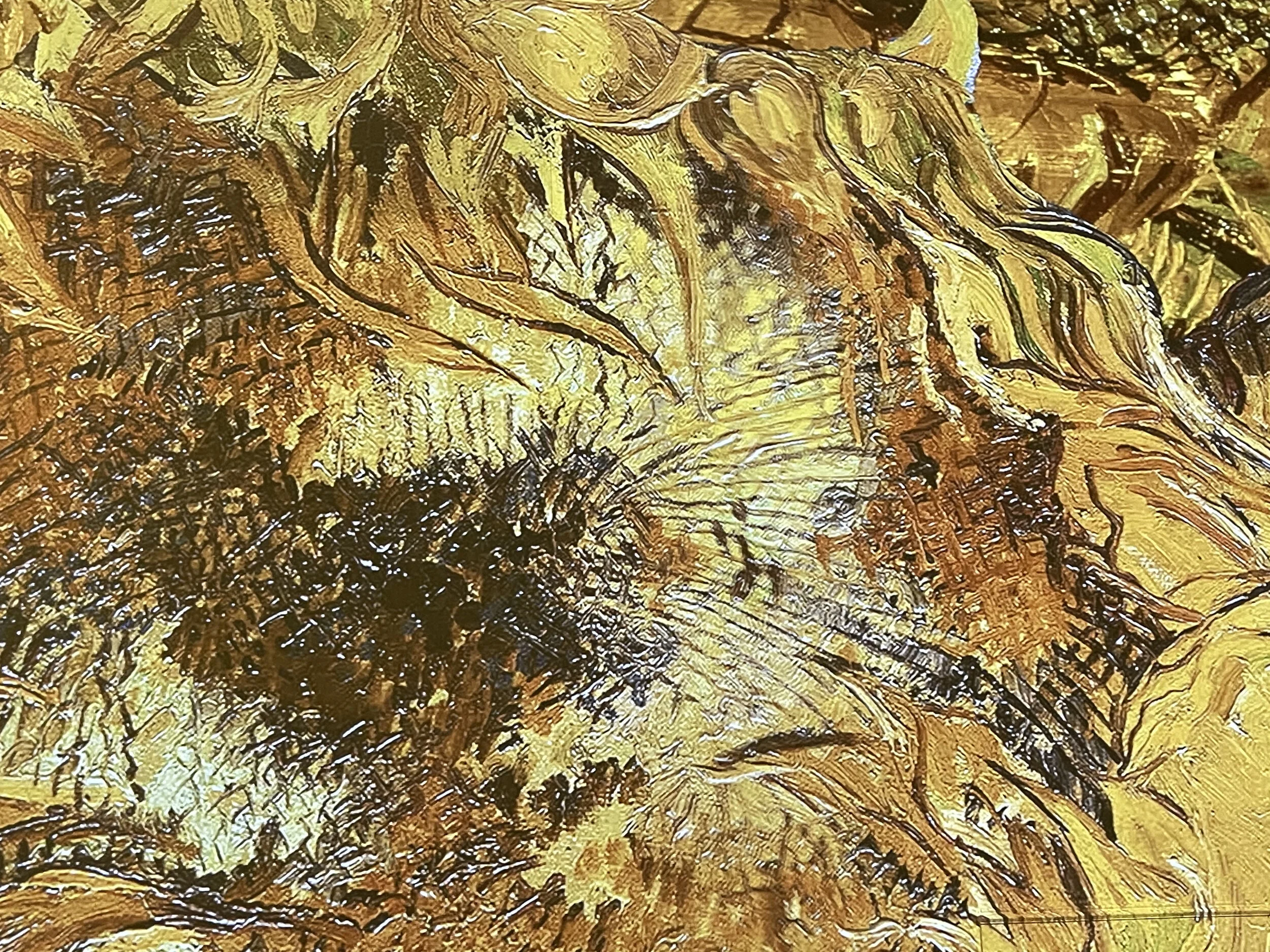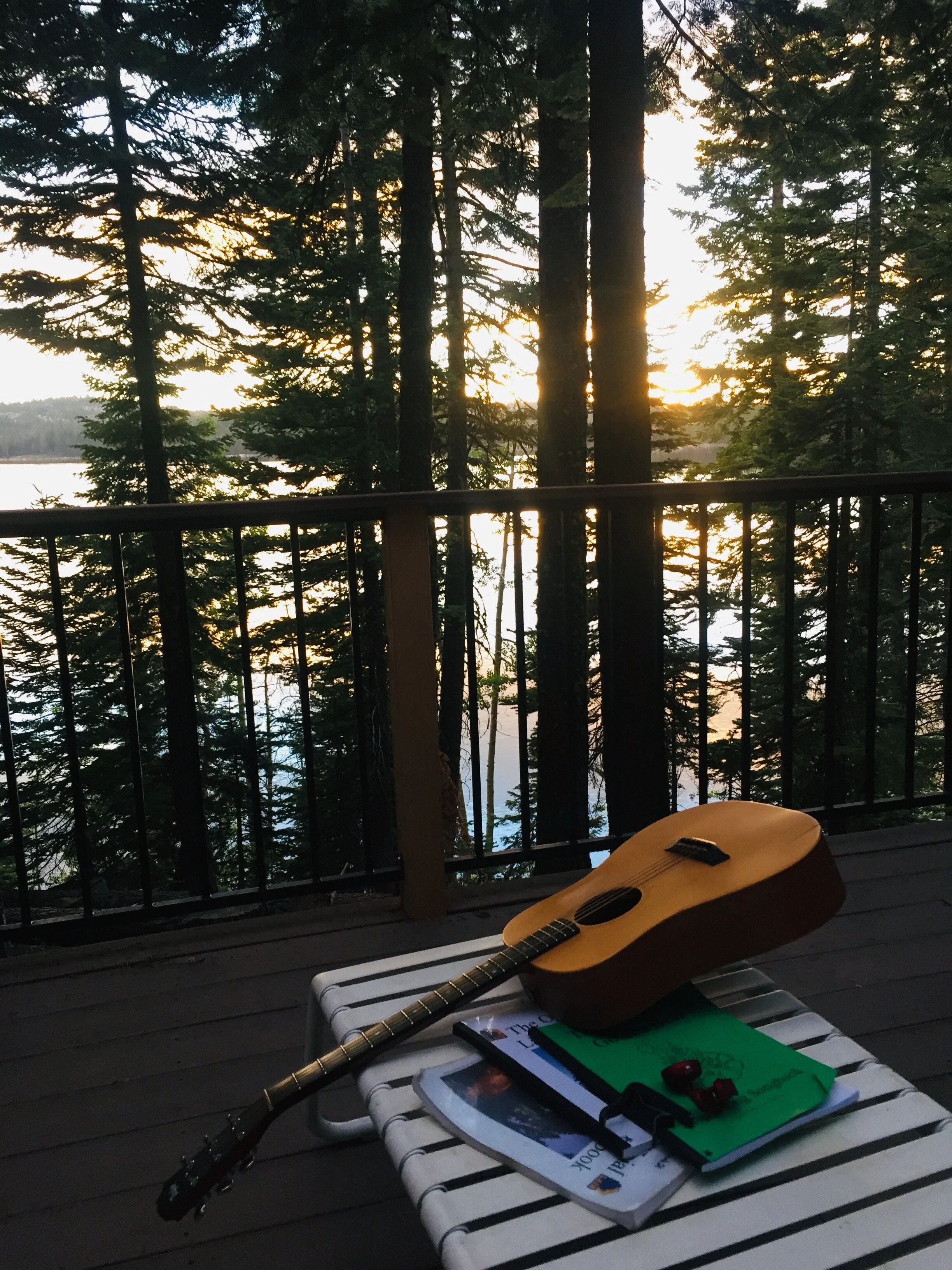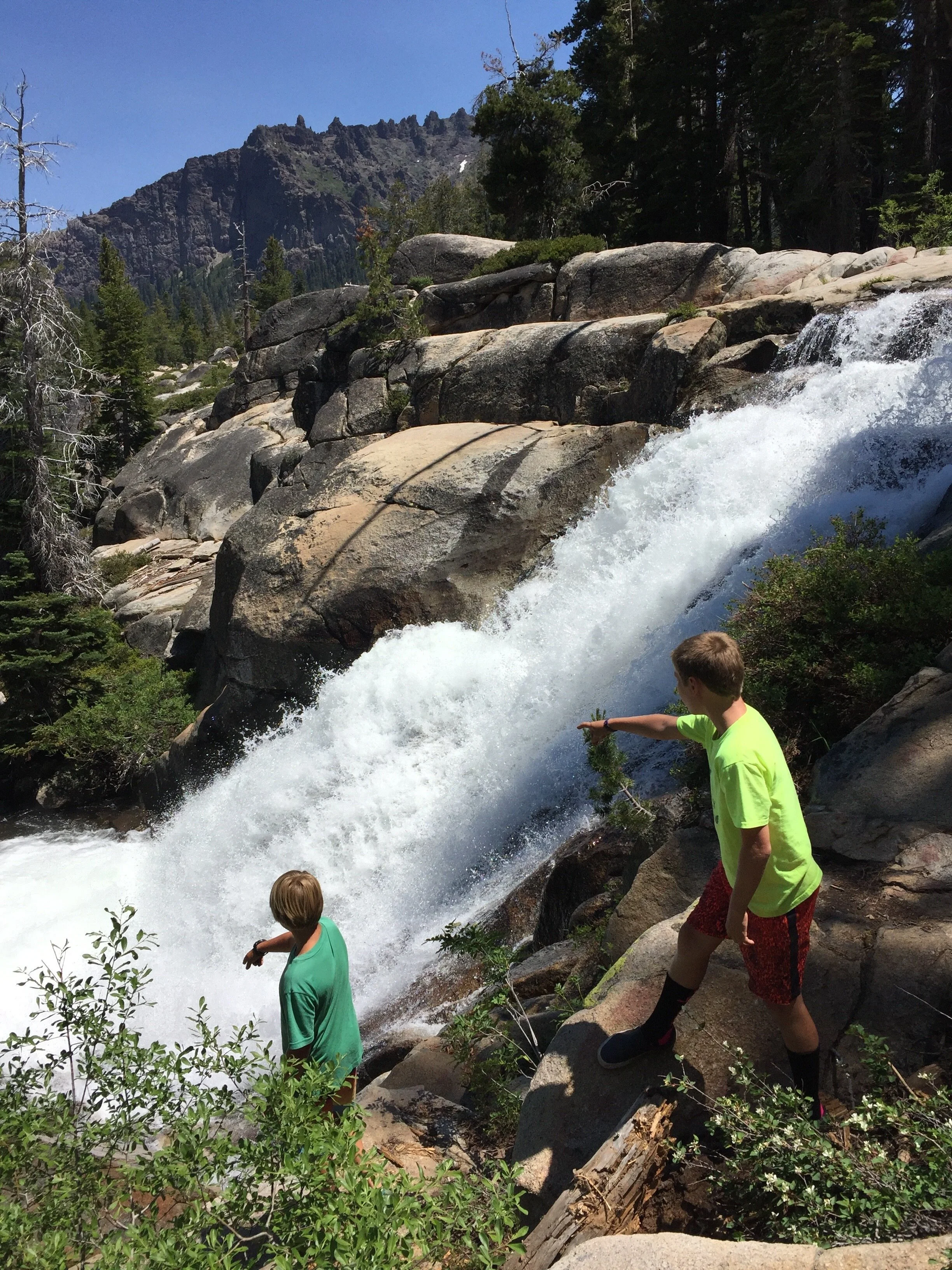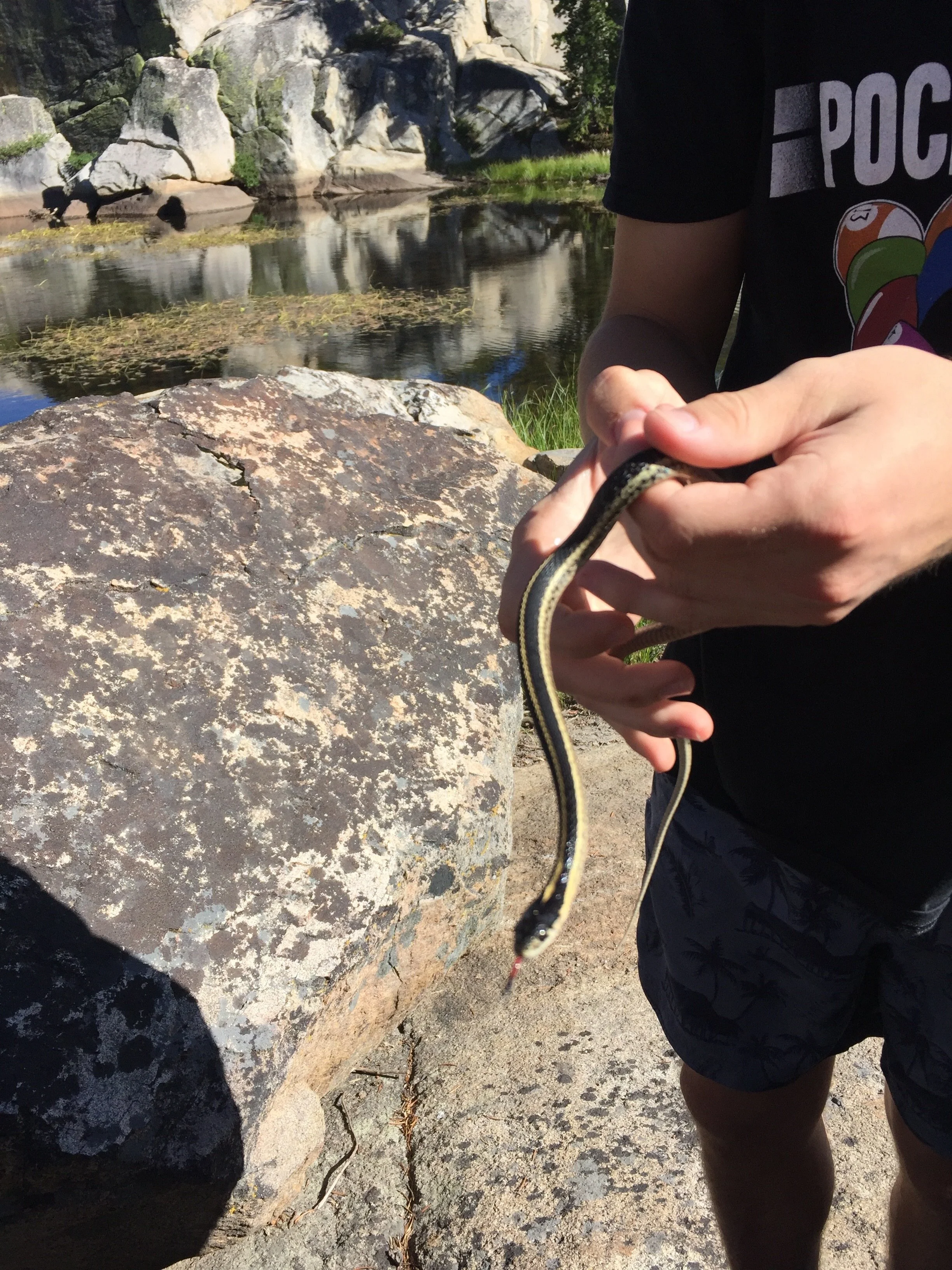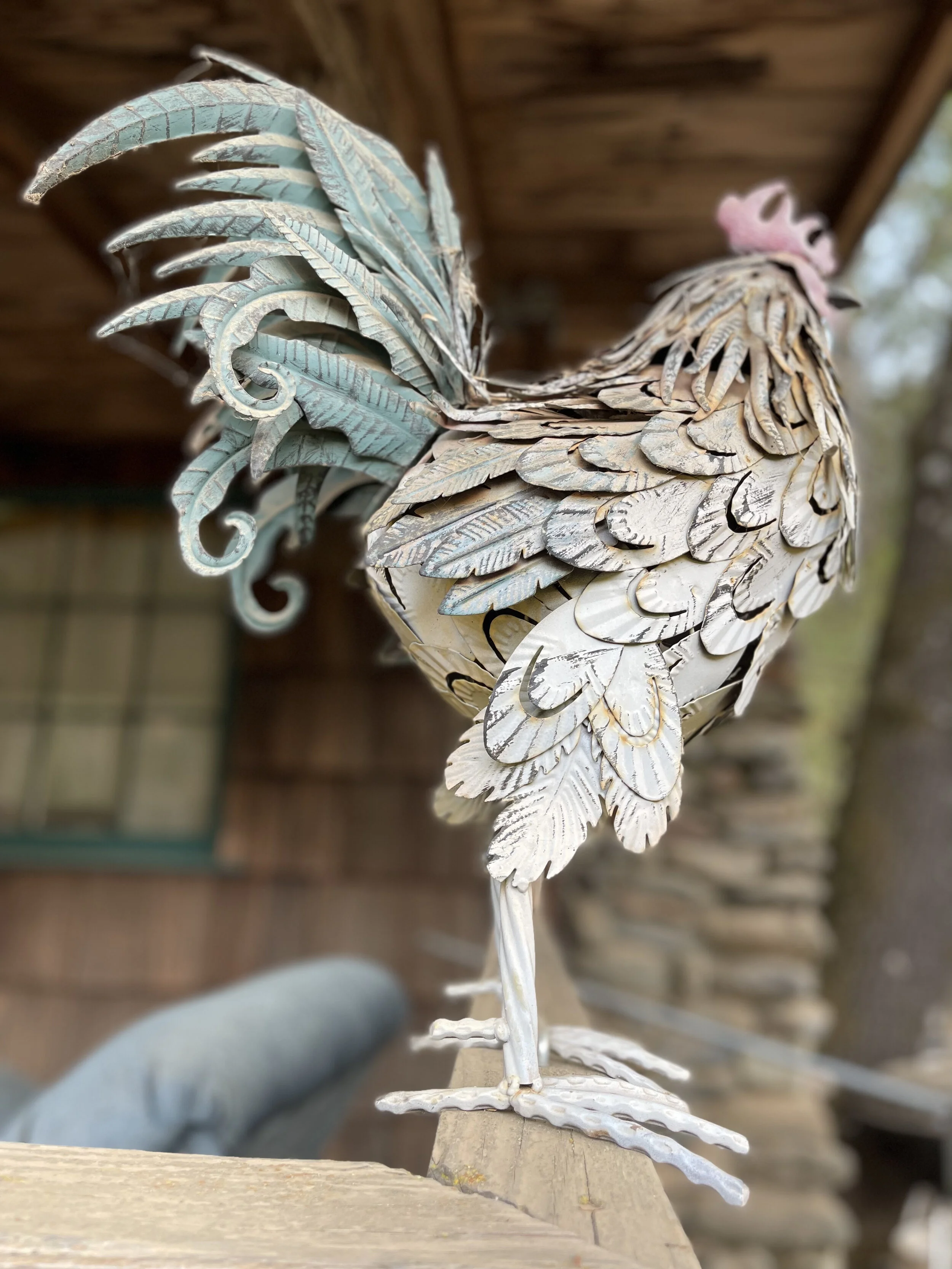At first, no words came. Flora stared down at Jake’s hand that held the old woman’s.
“Did you see what happened?” he repeated.
“She fell. Taking out the trash. It looked like she tripped. Her garbage bin rolled away out of reach. I think she hit her head.”
She tried not to cough, tried to ignore her eyes which had started to water. Jake leaned forward with his phone hand and touched Flora on the shoulder. He must’ve thought she was crying.
“Help’s on its way,” he said.
She just nodded.
The dispatcher came back on, confirming that an ambulance was on the way and not to move Mrs. Johnson unless she was in harm’s way.
“Were you walking by?” asked Jake.
“What?” Flora had been staring at his eyes as he spoke on the phone. They were a light shade of blue, like morning sky. “Oh, no. I saw it happen from my bedroom window.”
She pointed back at her house.
“Oh,” said Jake, “Oh, you’re that girl.”
That girl. Flora felt her cheeks, already surely mottled with a growing rash, flush warm.
“Sorry. I’m Jake,” he said quickly.
“Flora.”
“It’s funny that we’ve never met.”
“Yeah, well, I spend a lot of time at my grandmother’s apartment. Sometimes I’m at my dad’s. I don’t get out much here.”
“You have really bad allergies, right?”
Flora wondered if she should just leave, just rise and walk away, back to the house for an epi-pen and a bath and the air purifier, and to breathe through her nose. And to never come outside again.
Sirens crescendoed and an ambulance and fire truck pulled up next to them, lights flashing.
It was a whirlwind after that as the EMTs took Mrs. Johnson’s pulse, transferred her to a gurney and loaded her into the back of the ambulance. Flora and Jake took turns answering questions, Flora about the fall, Jake about Mrs. Johnson’s identity, conditions and relatives.
“I think I can find her son’s phone number and let him know where she is. Here’s my number in the meantime. We’re pretty close, Mrs. J and me.”
With another roar of siren, they were gone. Jake and Flora stood watching the ambulance disappear around the corner.
Then Flora started coughing. A raspy cough, a bad kind of cough. The coughing of a girl with every allergy in the book, a cough that might not stop for hours.
